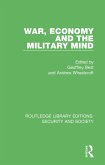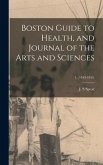It is often said that the American academic, protected by tenure, is free to do pretty much as he or she pleases. Lewis argues that this freedom is largely an illusion. Faculty actions are greatly limited by governing boards and the academic administrators they appoint, who control institutional resources. Although ostensibly independent professionals, in many ways faculty have no more autonomy than most employees. Indeed, what power they have derives from faculty-student relationships. Lay governing boards ultimately control how money is spent and who spends it. This volume addresses issues relating to current debates over the most appropriate and effective method of academic governance.When Power Corrupts details the conflict between the governing board and administration and faculty at Adelphi University in Garden City, New York, between 1985 and 1996. This conflict culminated in the removal of the Board of Trustees by the New York State Board of Regents. The new trustees in turn removed the president. Although the book focuses on board administration-faculty relations at one university, its findings have implications for almost all other institutions of higher learning in the United States. Lewis draws on the nearly 8,000-page transcript of the hearings of the Regents. These eleven volumes of exhibits include hundreds of documents obtained from individuals and organizations.Lewis suggests that academic administrators have more control of governing boards than is generally recognized. Besides influencing who is asked to join a board, administrators may largely determine the information boards receive and on which they must make decisions. When faced with decisions, boards often defer to academic administrators or acquiesce to a campus president's suggestions. Because conflict over governance all too often takes precedence over academic work on American campuses, the implications for higher learning are profound. Faculty, academic administrators,To most Americans, homicide appears to be a random act, one committed by a deranged and irrational killer in a haphazard, unpredictable manner. Murder is seen as a chaotic, disorganized act beyond the realm of reason. In Wicked Deeds, James O'Kane shows that homicide is actually rather predictable, and patterned with respect to its assailants and victims, the circumstances in which it takes place, the time and location where it occurs, and the motives which precipitate the murderous act. Engagingly written and solidly grounded in evidence, this is a definitive study of murder in the United States.O'Kane explores the phenomena of homicide, illustrating the journalists' who, what, why, when, and where" of murder. He differentiates criminal homicide, such as murder in the first and second degree, from other types of killings, including legal and quasi-legal killings. These include suicide, abortion, accidental death, terrorism, and other non-criminal types of homicide, such as justifiable and excusable homicide. The author's focus is criminal homicide, and he uses age, sex, race, and socioeconomic status, as well as demographic data to explain ever-recurring patterns of murder in the United States.Wicked Deeds analyzes numerous categories of murder: intimate partner homicide, child and family murders, multiple victim killings, including mass murder and serial homicide. Each type of murder is illustrated by accounts of actual murders reported in the media and on internet sites. Approximately 200 cases illustrate the typical homicides as well as the bizarre ones.In portraying the patterns and regularities of murder in the United States, Wicked Deeds is an essential treatment of a subject too often given over to sensationalism. It will be of keen interest to professionals and students of criminal justice, as well as those interested in American culture and the general reader who wants to grasp the patterns underlying the
Hinweis: Dieser Artikel kann nur an eine deutsche Lieferadresse ausgeliefert werden.
Hinweis: Dieser Artikel kann nur an eine deutsche Lieferadresse ausgeliefert werden.








